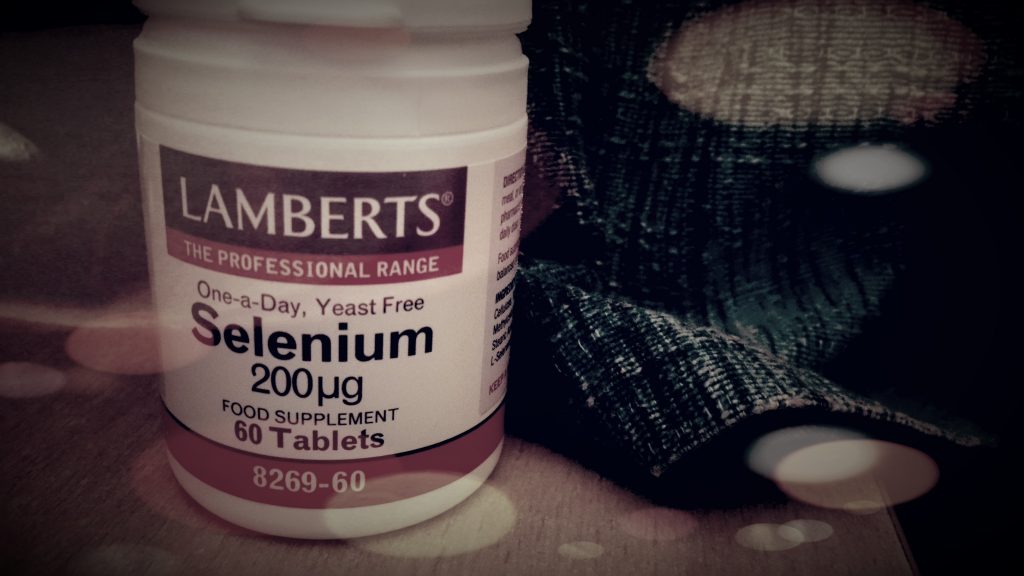 When selenium levels drop, the brain is preferentially supplied with any spare selenium. Further, as selenium levels drop in the brain it is known that certain neurotransmitters have their synthesis rates affected. This has lead to speculation that selenium is an important nutrient for brain function and may therefore affect mood. The pivotal requirement of selenium by the brain is suggested also by the inverse association between plasma levels of selenium and the risk of dementia, and the higher risk of seizures in children with a low selenium status. One reason for the particularly beneficial effects of selenium in the brain health is that the brain is low in the antioxidant enzyme catalase, and therefore relies on the selenium dependent glutathione peroxidase to inhibit the formation of harmful peroxidation products such as hydrogen peroxide. Studies have shown that selenium supplementation is beneficial to the mood and that this benefit may be more apparent in those with low intakes and low blood levels of selenium.
When selenium levels drop, the brain is preferentially supplied with any spare selenium. Further, as selenium levels drop in the brain it is known that certain neurotransmitters have their synthesis rates affected. This has lead to speculation that selenium is an important nutrient for brain function and may therefore affect mood. The pivotal requirement of selenium by the brain is suggested also by the inverse association between plasma levels of selenium and the risk of dementia, and the higher risk of seizures in children with a low selenium status. One reason for the particularly beneficial effects of selenium in the brain health is that the brain is low in the antioxidant enzyme catalase, and therefore relies on the selenium dependent glutathione peroxidase to inhibit the formation of harmful peroxidation products such as hydrogen peroxide. Studies have shown that selenium supplementation is beneficial to the mood and that this benefit may be more apparent in those with low intakes and low blood levels of selenium.

Low intakes of selenium may be a cause of low mood. Those with the lowest intakes and lowest blood levels of selenium benefit the most from selenium supplements. In those with low selenium status, 100 micrograms per day may be enough to significantly elevate mood.
Low selenium status is associated with a greater incidence of depression, anxiety, hostility and confusion. When selenium levels are reduced in the diet through restriction, low mood scores worsen, suggesting that a poor selenium status is the cause of the low mood. In fact, the selenium restriction in one study that caused mood deterioration provided only 32.6 micrograms per day of selenium, close to the intake of selenium in the United Kingdom (roughly 29 to 39 micrograms per day). In contrast, addition of selenium to the diet of those with low intakes (up to 226.5 micrograms per day) caused a significant improvement in mood and a reduction in depression. In another study, 100 micrograms of selenium significantly decreased anxiety, depression and tiredness with the effects being seen most in those with the lowest blood levels of selenium. Therefore selenium appears to be involved in protection from mood disorders, perhaps because it is required as a cofactor to the antioxidant enzyme glutathione peroxidase.
Eat Well, Stay Healthy, Protect Yourself
RdB
